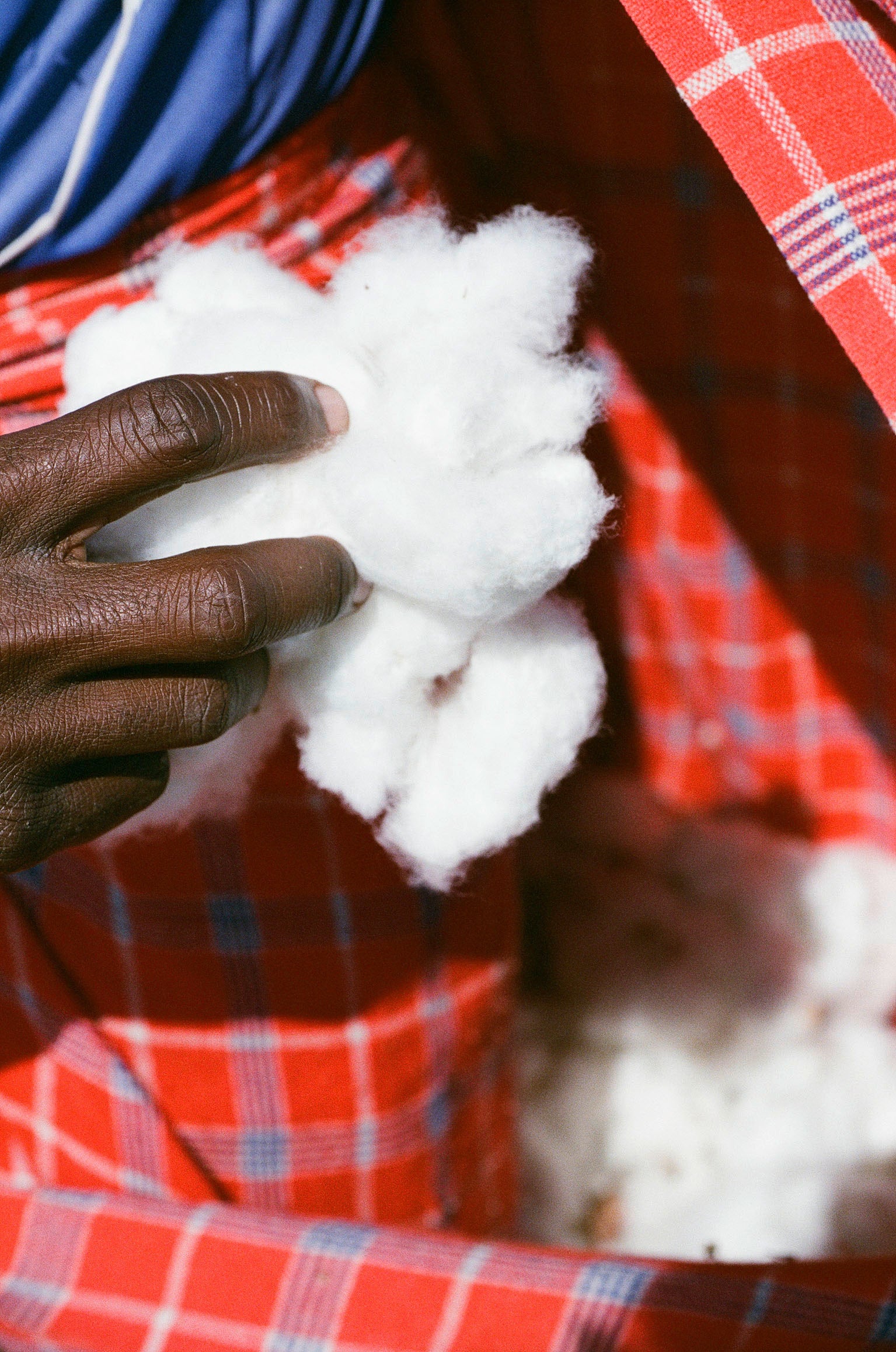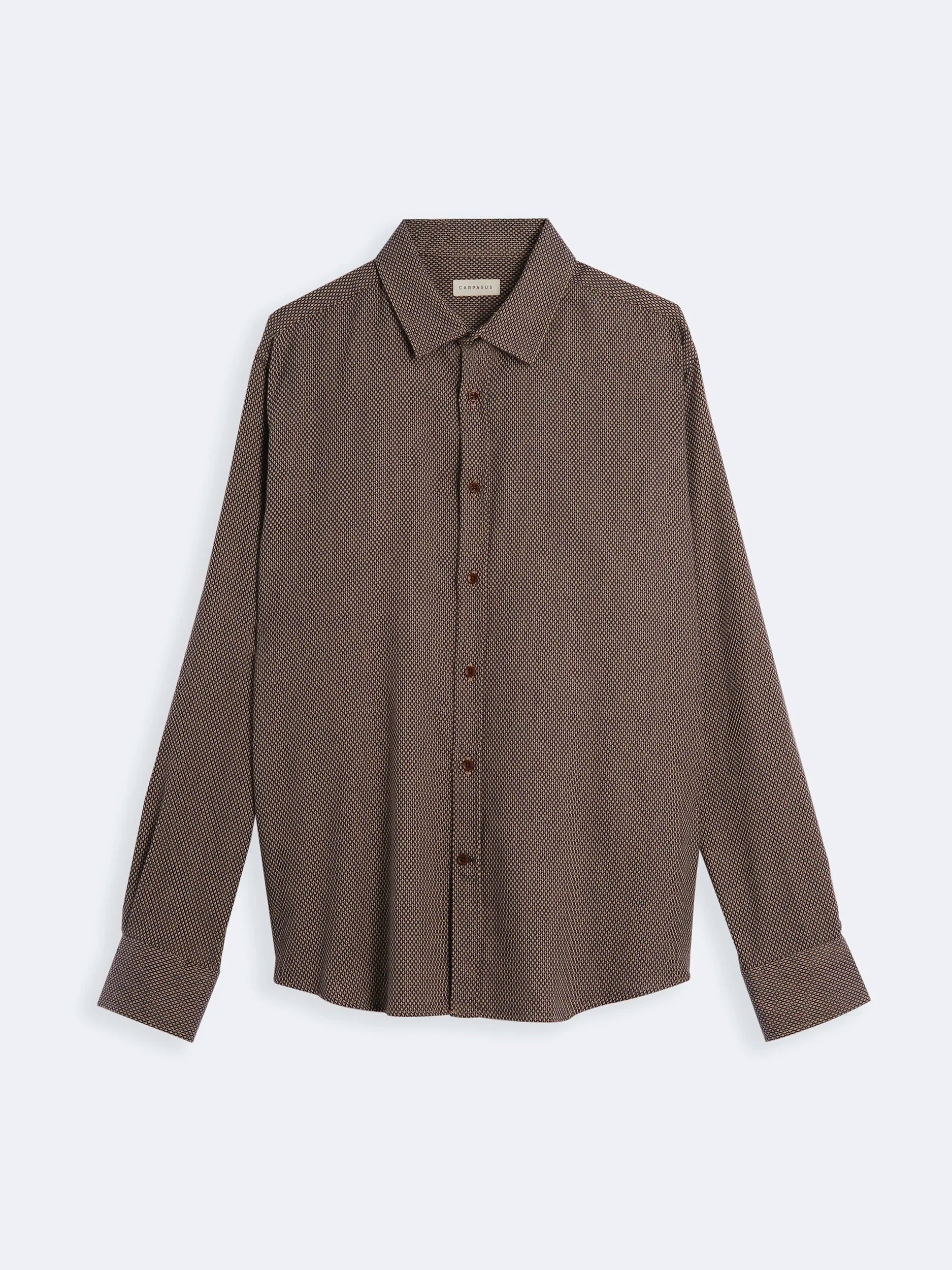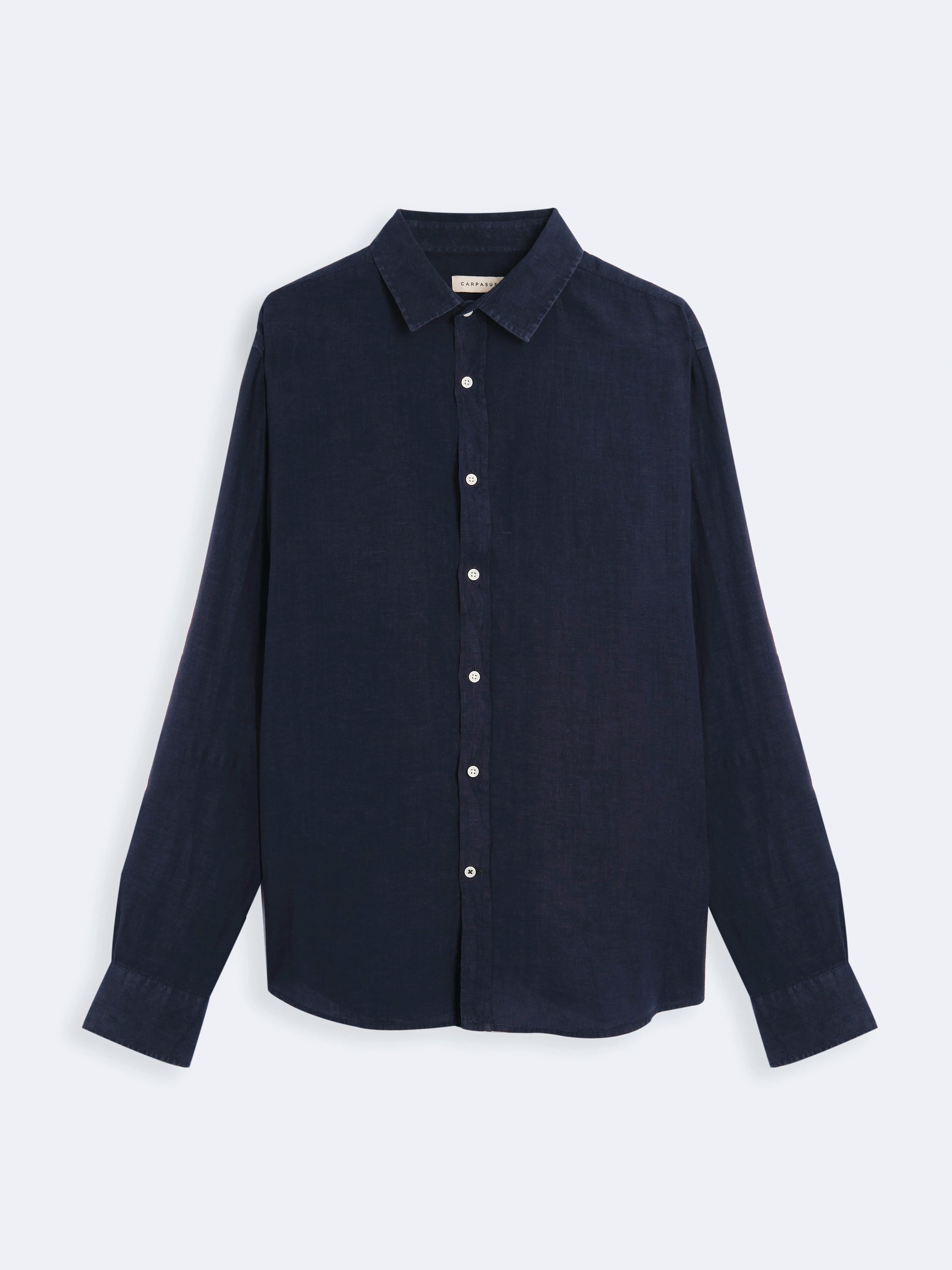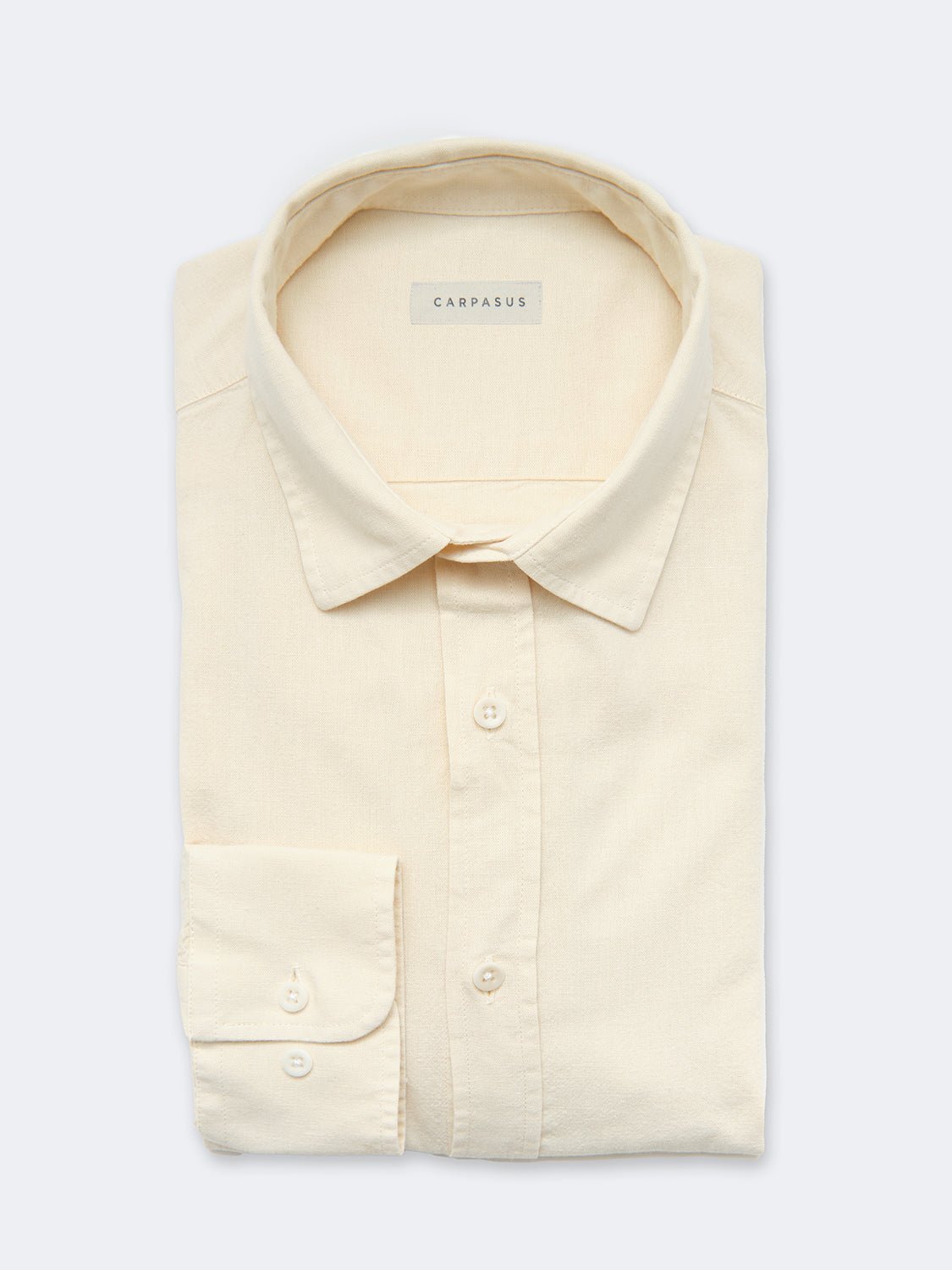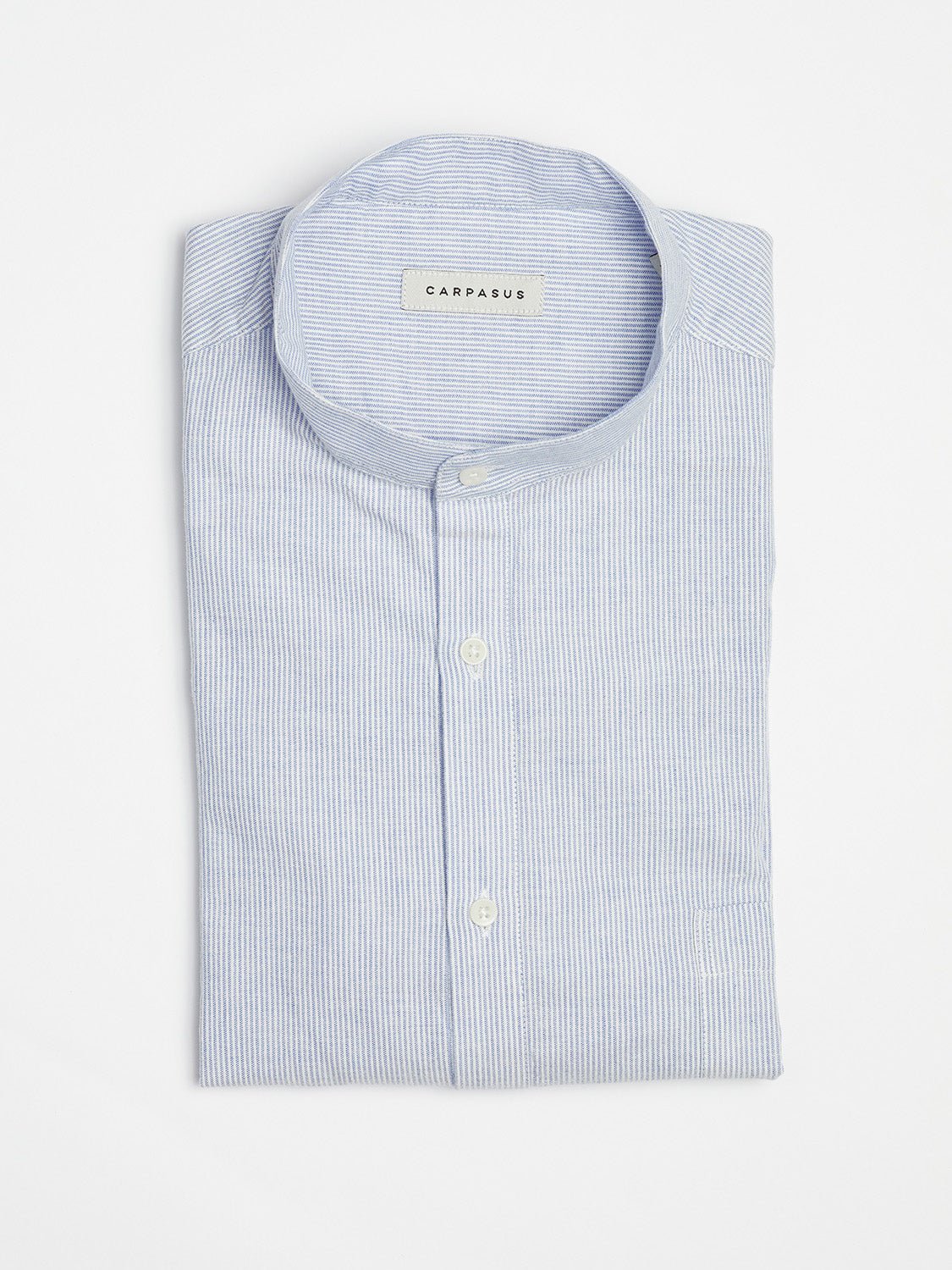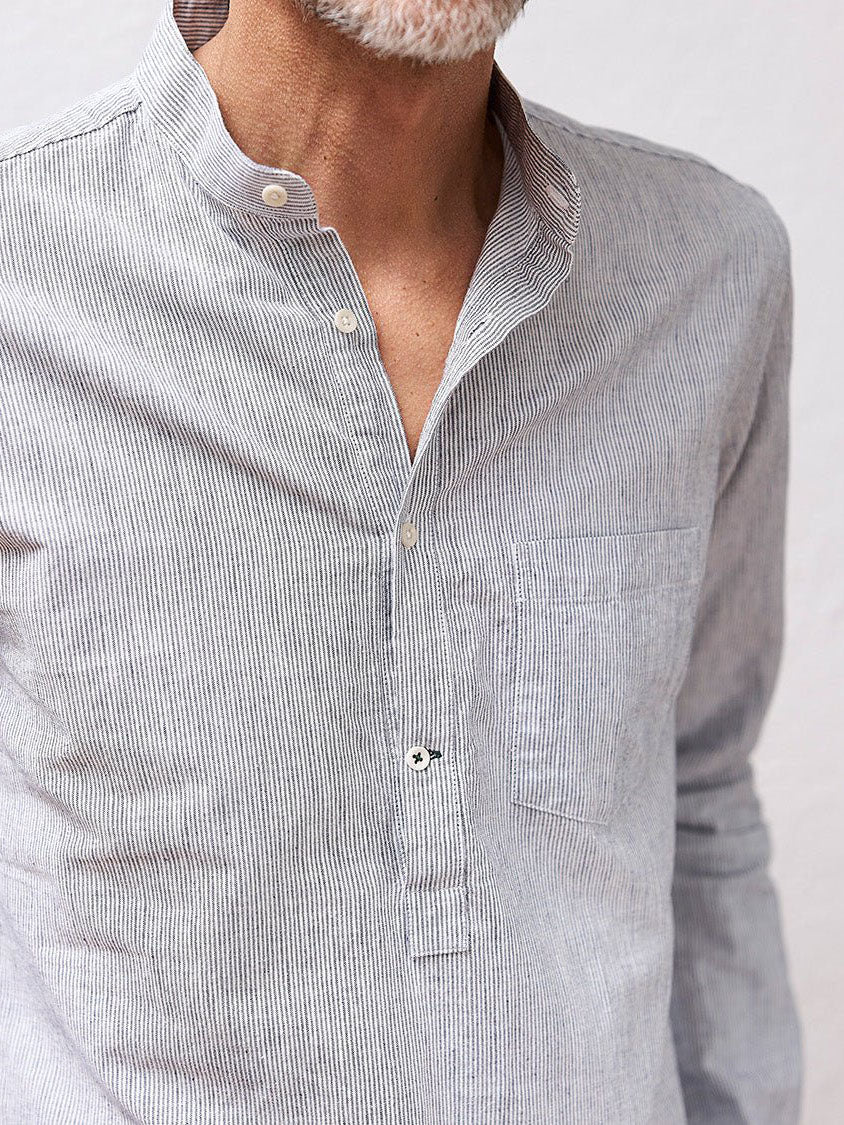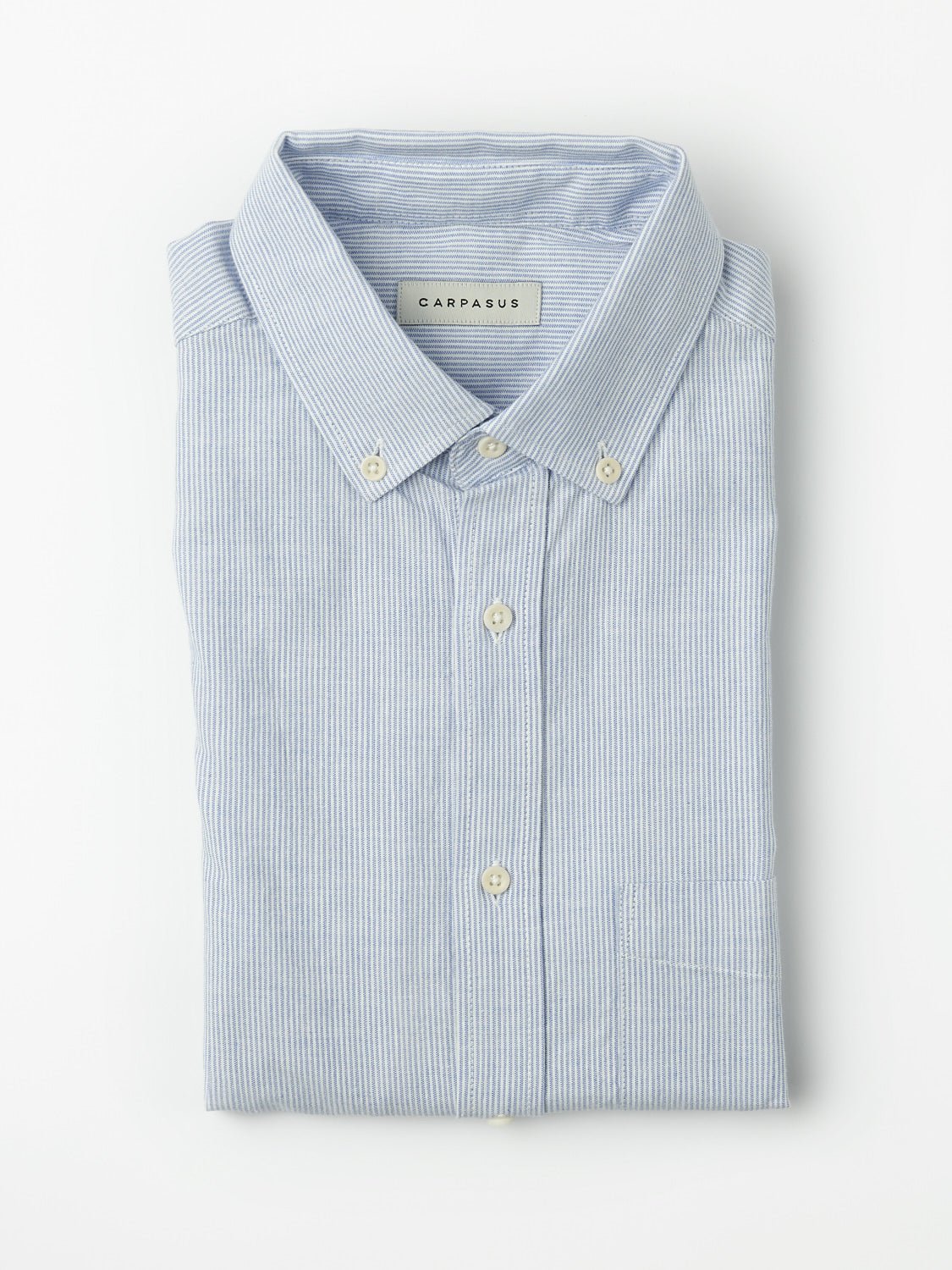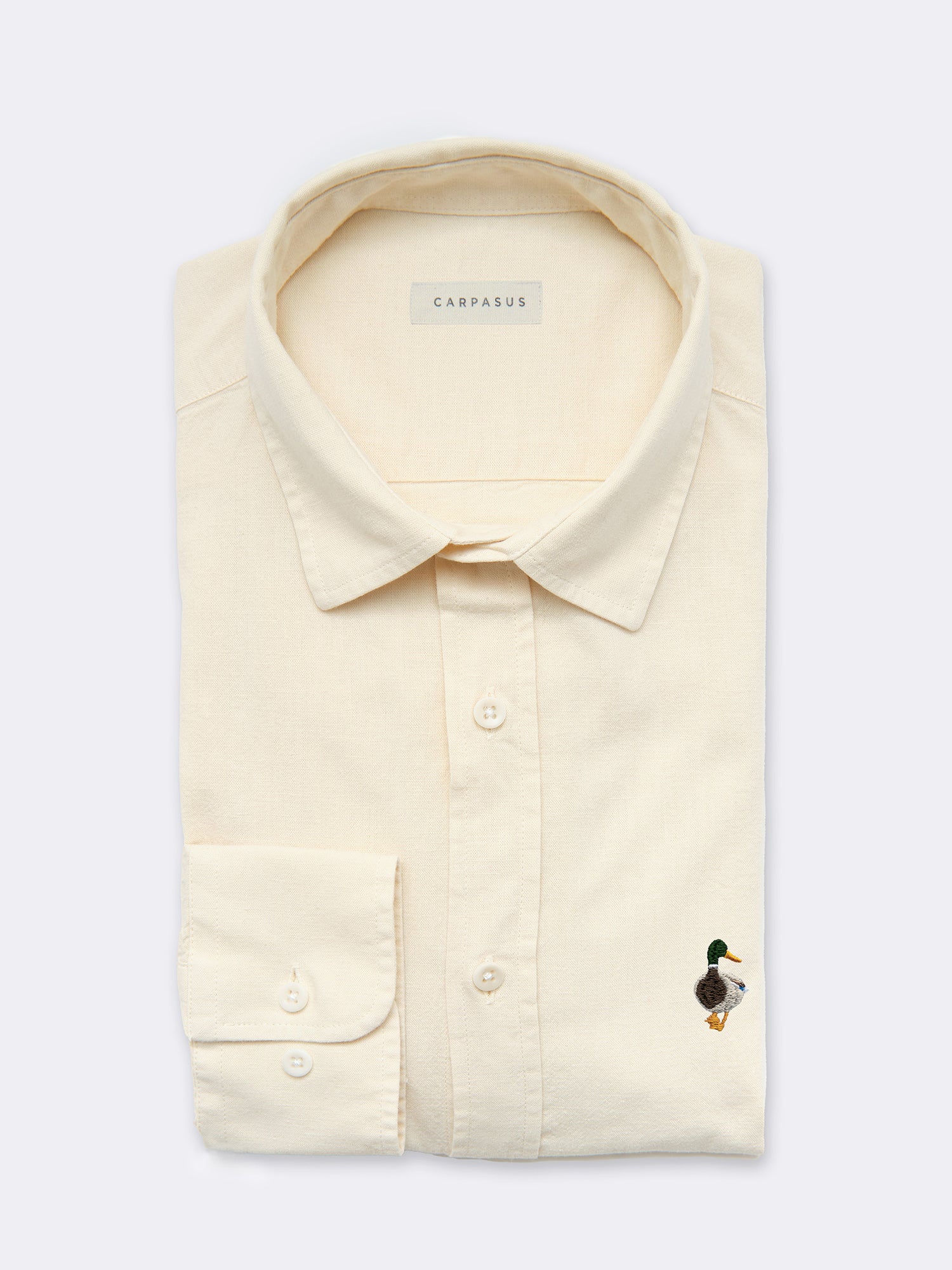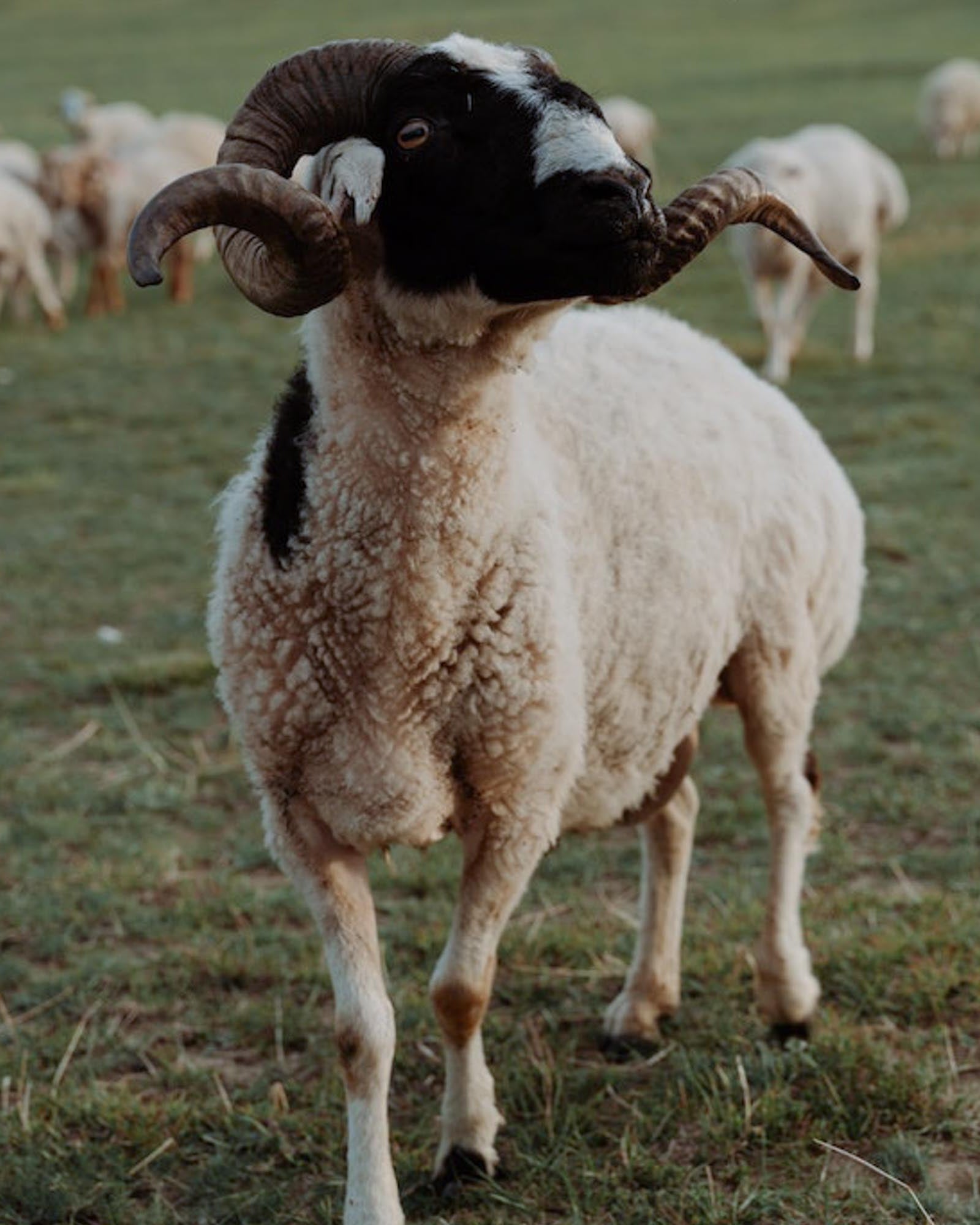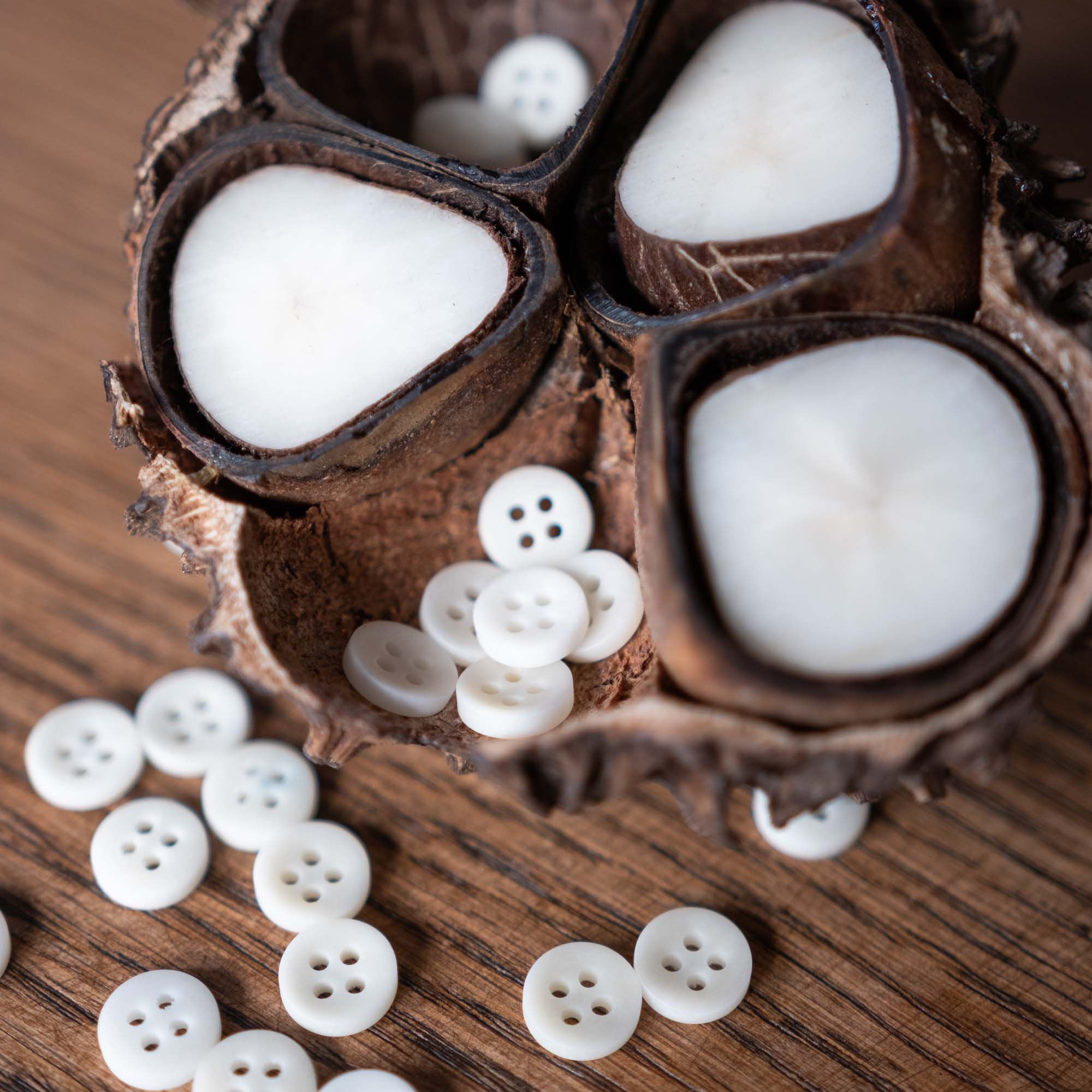Learn more about
Our Materials
We craft our collections only from natural materials. Here you find more infos about type, the origins and the advantages of the raw materials we use.
Organic farming protects nature
The organic cultivation of cotton does not allow the use of genetically modified seeds, the use of pesticides, herbicides, insecticides and synthetic fertilizers. In most cases, organic cotton is grown in smallholder structures. The organic farmers have all the resources they need for fertilizing and protecting their crops on their farms.
Instead of synthetic fertilizers, organic farmers use natural fertilizers such as cow manure. They might also prepare their own substances for pest controls from plants they have at hand. Intercropping with sunflowers and other plants also helps to keep pests away in a natural way. By avoiding pesticides and synthetic fertilizers, flora and fauna in the growing area is not exposed to harmful substances. (source 6)
Better lives for farmers
Not only does the growth of organic cotton protect farming communinities from harmful substances it can also make them more independent. 70% of the cotton acreage is cultivated with genetically modified cotton (3). Genetically modified cotton seeds were originally developed to guarantee protection against pests such as the boll weevil. However, because the pests become resistant or populations of other harmful insects have increased, pesticides cannot be avoided. As a result, farmers have high expenses for the purchase of synthetic fertilizers and pesticides. They also have to buy the genetically modified seeds every year, which forces them to become dependent on the agrochemical companies. (4)
Organic farmers can reuse the cotton seeds of their harvest for the next sowing season. This means that they have no expenses for genetically modified seeds, fertilizers and pesticides and do not have to take up loans for their procurement. Organic farming also prescribes crop rotations. Monocultures are not allowed. In addition to cotton, organic farmers also rely on other crops such as maize, soybeans, and wheat to compensate for possible losses and improve their livelihood. (6)
Healthier soils
Soils are less polluted when natural fertilizers instead of synthetic fertilizers are used, when pesticides are not applied and crop rotation is practiced. Soil fertility increases, which is particularly reflected in a higher humus content. As a result, the water capacity is higher and the soils can store more water and are therefore more resistant to drought. (6)
Lower water consumption
Cotton is generally a water-intensive crop. Today it grows in countries such as Turkey, India, China, the USA, Pakistan, Tansania or Uzbekistan. Globally, depending on the growing region, 10'000 to 20'000 liters of water are needed to grow one kg of cotton (7) In most cases, the plants must be artificially irrigated to cover water consumption. This high water consumption is called “blue water”, which describes the water that is taken from lakes, streams or rivers or from groundwater. The vanishingly small Aral Sea in Uzbekistan is evidence of the overuse of water sources caused by agriculture and cotton cultivation in particular. The lake has given way to a salt desert today.
Some studies have found that organic cotton cultivation uses up to 91% less groundwater than conventional cultivation (8). In our opinion, this number should be treated with caution, since the possibility of rain irrigation certainly depends on the geographic location and not purely on whether it is organically grown or not. However, various sources show that the majority of organic cotton is grown in areas where rain irrigation is possible and is practiced. According to Textile Exchange, 80% of the organic cotton fields are rain-irrigated. (9)
Less CO2 emissions when growing
If one measures the effects of cotton cultivation on climate change in the form of CO2 emitted, Textile Exchange found that the cultivation of organic cotton emits 46% less CO2. This is the result of the absence of synthetic fertilizers, pesticides and insecticides, which consequently do not have to be manufactured and do not have to be distributed (with vehicles). The study also takes into account the fact that smaller amounts of CO2 are generated because less irrigation is used and, accordingly, fewer water pumps have to be operated. (8)
978 kg of CO2 are emitted for 1 ton of organic cotton. For the same amount of conventional cotton, it is approx. 1’800 kg CO2. (8) For a shirt, we need around 200 g of cotton, which means about 0.2 kg of CO2 for the cultivation of the raw material. Notabene: This only reflects the cultivation and says nothing about which emissions will be emitted later for the processing and transport of the materials and the finished goods.
Support small-scale farmers
Parts of our cotton shirts are made from organic cotton that was grown by cooperatives in India and Tansania that were initiated by the Swiss based company Remei AG. The use of these cotton sources offers us full traceability of our cotton shirts. Remei India and Remei Tanzania are organisations founded by the Swiss yarn trader Remei AG based in Rotkreuz. Both organisations buy organic cotton from 4'000 (India) and 2'000 (Tanzania) small-scale farmers.
The local organisations teach farmers in the cultivation of organic cotton, provide them with GMO-free cotton seeds, guarantee the purchase of their harvest and provide them with a 15% premium (based on average 5 years market price). The cotton sourced from these organisations are cultivated, picked and ginned according to the GOTS standard. You find organic cotton grown by the Remei farmers in our Populus and Castanio shirts.
Sources for the above statements
(1) Quantis, 2018, Measuring Fashion
(2) Textile Exchange, 2018, Organic Market Report
(3) www.fibl.org/de/themen/biobaumwolle/biobaumwolle-hintergrund.html, accessed on 29/01/20
(4) https://www.biore.ch/darum-biore/probleme/ accessed on 29/01/20
(5) https://naturtextil.de/themen/bio-baumwolle/
(6) https://www.biore.ch/darum-biore/leistungen/ accessed on 29/01/20
(7) Soil Association, 2019, Thirsty for fashion?
(8) Textile Exchange, 2014, The Life Cycle Assessment of Organic Cotton Fiber, Summary of Findings
(9) Textile Exchange, 2017, Organic Cotton Sustainability Assessment
Our Organic Cotton shirts.
Linen keeps you cool
No other fabric is better suited to absorb and exchange moisture with the surrounding air than linen. It is breathable, moisture-regulating, and therefore cools you down in summer. At the same time, it has an antibacterial effect on the skin, making it less prone to develop odor.
Linen fabrics are also particularly tear-resistant. Clothes made from linen are very durable. In addition, compared to many other types of fabric, linen fabrics are lint-free. They do not pill.
It's a low impact material
Flax is a raw material that is less susceptible to pests than cotton and uses considerably less water. Whenever possible we use organically grown flax that does not use any pesticides and synthetic fertilizers. Yet, the supply of organic flax is still very limited on the world market. We have decided to prioritise the use of flax that is grown in Europe rather than in far-off places like China in order to keep the transport distances short - even though this means the flax we use is not always grown organically.
Our linen fabrics are made according to the Masters of Linen® Standard. It is an industry standard set up Europe's linen companies that seek to promote the ecological cultivation of flax and a stronger European supply chain. The standard does not allow the use of GMO seeds, avoids irrigation of the fields and promotes field retting instead of water retting that uses large amounts of water and causes pollution of the
wastewater. It also demands that the linen yarn and the fabric are made in Europe.
Every linen shirt starts with flax
Flax is at the origin of all Linen shirts. Linum usitassimum is a narrow-leafed, erect and blooming plant with a blue flower that is planted between March and April. After 100 days the plant is about 1 m high and ready to bloom. The beautiful blue linen flower only lives for a few hours and transforms the landscape into a lake of blues and greens.
In July the plants are pulled and placed in bundles on the ground where the "retting" starts. This natural process detaches the fibrous skin from the wooden stem. To further help separate the fibers from the stem a mechanical process called "scutching" is used. It involves stretching, grinding and threshing the plant. The combing process kicks-off the next phase where the fiber is transformed into yarn at the spinning mill that will later be used to weave fabrics.
Raw material with a long tradition
The use of linen for textile production has a long history. Mummies were wrapped in linen cloth in ancient Egypt. From Greek and Roman antiquity to the European Middle Ages, linen was the go-to material for clothing alongside wool. With the increasing industrialization in the 19th century, cotton became more important and linen was used less often. However, the fashion industry's interest in this material has grown in recent years because of its much-loved qualities.
While cotton is only rarely cultivated in Europe, about 80% of the world's used flax fibers are grown in Europe. In general, flax is still a niche fiber in the textile industry. Only 1 Million tons of flax were grown in 2021 according to Textile Exchange (compared to 24 Million tons of cotton). Only 0.5% of the world's flax production is organic.
European Craftsmanship
The flax used for our shirts is grown in France, Belgium and The Netherlands and processed by spinning mills in the Baltic, Hungary and Italy. The yarns are woven by our long-time weaving partners in Portugal near Porto. Only a few kilometers away the fabric is used to tailor our timeless and long-lasting linen shirts by our Portuguese shirt-maker. There's a lot of Europe in our linen shirts!

